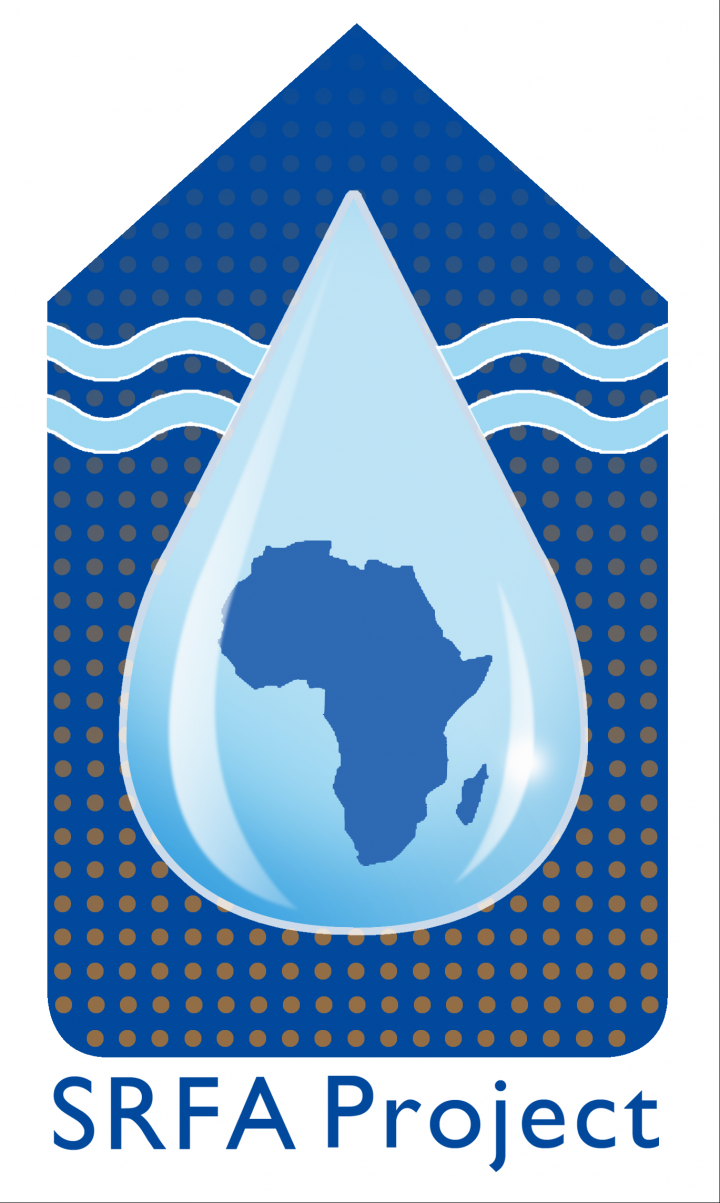Sanitation Research Fund of BMGF/WRC (SRFA): Knowledge-based Solutions for Onsite Dry Sanitation Challenges in Sub-Saharan Africa - Various documents on results from research grant
Pillay, S., Bhagwan, J. (2014)

Published in: 2014
Publisher:
Water Research Commission (WRC), South Africa
Author:
Pillay, S., Bhagwan, J.
Uploaded by:
Elisabeth von Muench
Partner profile:
Water Research Commission
7076 Views
187 Downloads
Location of library entry
This library entry contains background documents for a grant that Sudhir Pillay is leading and which is funded by the Bill and Melinda Gates Foundation (further information is also available on the SuSanA discussion forum, see link below).
The SRFA Project was established through a USD 2.5 Million grant from The Bill & Melinda Gates Foundation (BMGF). The project was aims to stimulate local competency and capacity in the sanitation sector in the Eastern and Southern African Regions, and to provide solutions based on good scientific evidence related to up-scaling dry sanitation technologies. Ten research contracts will be issued, on a competitive basis, to research institutes or organisations in the targeted areas. The projects will be executed using the WRC model of research and innovation generation and dissemination.
Two key research areas have been identified for the project. They are:
• Characterisation of pit contents and developing a scientific understanding of processes occurring in onsite dry pit latrines systems in low income urban areas
• Developing innovative techniques for pit desludging and subsequent sludge management in low income urban settlements
Four institutions/organisations have been selected for developing innovative techniques for pit desludging and subsequent management:
ATL-HYDRO (South Africa - Dr. Wade Edwards)
Water for People (Uganda - Mz Cate Nimanya)
Mzuzu University (Malawi - Dr. Rochelle Holm)
Chinhoyi University of Technology (Zimbabwe - Dr. Courage Bangira).
Different technologies will be used by each of these groups. ATL-Hydro intends on testing a mobile pyrolysis and biochar unit. Water for People intends using various technologies (modified gulpers, etc.) to remove the sludge and treat it accordingly. Mzuzu plans on testing a pressure washer and pump system. Chinhoyi University of Technology plans on using an anaerobic digester to treat faecal sludge. The specifics of each of these projects and technologies will be available at a later stage.
Six applicants were offered contracts to analyse various physico-chemical properties of pit sludge:
University of Botswana (Botswana - Dr. P. Odirile)
Jimma University & the Ministry of Water and Energy (Ethiopia - Mikiyas Wolde)
Egerton University (Kenya - Edward Muchiri)
University of Malawi (Dr. Bernard Thole)
Makerere University (Uganda -Ahamada Zziwa)
University of Zambia (Zambia - Professor I. Nyambe)
The pit sludge characteristics in these different countries will be characterised for a number of parameters (chemical, physical and biological).
Duration: Nov. 2012 - June 2016
Documents available :
1 - Sanitation Matters magazine, Issue 5 contains an overview of this project:
http://www.susana.org/en/resources/library/details/1999
2 - Sanitation Matters magazine, Issue 6 contains updates on some of the projects: http://www.susana.org/en/resources/library/details/2105
3 - Bhagwan, J. (2014): Presentation about the SRFA Project, South African Water Research Commission
4 - Pillay, S., Bhagwan, J. (2015): Presentation about the SRFA Project at FSM3 Conference in Hanoi, South African Water Research Commission
5 - Bangira, C., Changara, M. C., Katiyo L., Misi, S., Sanyika, W. (2015): Presentation on the use of anaerobic technology to treat pit latrine sludge for beneficiation at FSM3 Conference in Hanoi, Chinhoyi University of Technology
6 - Chipeta, W., Holm, R. (2015): Technology for pit desludging in peri-urban Mzuzu, Malawi, Mzuzu University (Presentation at FSM3 Conference in Hanoi)
7 - Kalulu, K. (2015): Characterisation of pit sludge management, sludge biochemical degradation, and respective impacts on public health in unplanned settlements of Malawi, Polytechnic University of Malawi (Presentation at FSM3 Conference in Hanoi)
8 - Malinga, S. (2015): Development of a low cost desludging pump in Uganda, Water for People Uganda (Presentation at FSM3 Conference in Hanoi)
9 - Atwijukye, O. (2015): DEFAST - Testing a low cost decentralised faecal sludge treatment system, Water for People Uganda (Presentation at FSM3 Conference in Hanoi)
10 - Beyene, A., Addis, T., Wolde, M., Tesfahun, E., Hailu, T., Faris, K. (2015): Status of urban sanitation in the capital of Ethiopia and the urgency of adopting an integrated FSM system (Presentation at FSM3 Conference in Hanoi)
11 - Edwards, W., Salie, Y., Loff, B., Sheldon, M., Cousins, D., Lagardien, A. (2015): UbuntuSAN: A Micro-Entrepreneurship Model for Point-of-Use Dry Sanitation and Sludge Beneficiation using Concentrated Solar Power (Presentation at FSM3 Conference in Hanoi)
12 - WRC (2015). The Status of Faecal Sudge Management in Eight Southern and East African Countries. WRC Report No. KV 340/15 , prepared for the Sanitation Research Fund for Africa (SRFA) Project of the Water Research Commission (WRC), Pretoria, South Africa, ISBN 978-1-4312-0685-8
Available: http://www.susana.org/en/resources/library/details/2364
Bibliographic information
Pillay, S., Bhagwan, J. (2014). Sanitation Research Fund of BMGF/WRC (SRFA): Knowledge-based Solutions for Onsite Dry Sanitation Challenges in Sub-Saharan Africa - Various documents on results from research grant. Water Research Commission (WRC), South Africa
Filter tags
Faecal sludge treatment processes Fundamental research and engineering Peri-urban Sub-Saharan Africa















